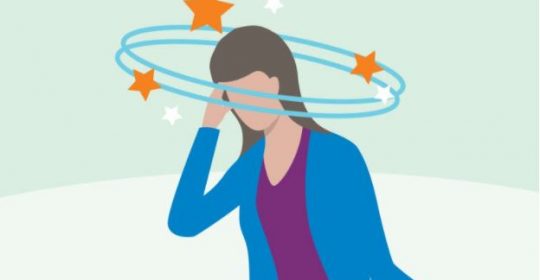
Possible Causes of Dizziness
People typically describe dizziness as feeling lightheaded or unbalanced. It can affect the eyes and the ears and can also lead to fainting. Dizziness itself is not considered to be a disease, but instead a symptom of other disorders. You may experience feelings of motion sickness or may feel as though you’re leaning towards one side. If problems of dizziness persist for days at a time, it is highly recommended that you visit licensed neurologists in Dubai in order to assess the situation and take the right steps to get better.
Many people tend to confuse dizziness with vertigo and vice versa. There are different reasons as to why you may feel lightheaded or ‘wonky’. It’s typically hard to recognize through a self-diagnosis if you actually have vertigo or whether you’re simply feeling dizzy.
Generally, dizziness refers to feelings of disorientation where people start to feel as though they are unbalanced. Vertigo, however, is more like a spinning sensation that can be extremely debilitating and tends to happen abruptly.
What causes dizziness?
There are different conditions and diseases that can cause dizziness as balance involves several parts of the body. The brain receives messages about movement from the inner ear, muscles, joints and eyes. Inner ear problems are usually the cause of dizziness, with the most common causes being Meniere’s syndrome, ear infections and benign paroxysmal positional vertigo (BPPV).
Blood circulation
Dizziness can often be a sign of blood flow issues. As the brain requires a steady and constant supply of oxygenated blood, you may feel lightheaded if there is a change in blood flow. Some causes of low blood flow can include clogged arteries, irregular heartbeat, heart failure and blood clots.
Ear infections
Ear infections are most commonly associated with vertigo and can be one of two types – vestibular neuritis or labyrinthitis. Both can be caused by a viral infection by bacteria from an infection, or even meningitis, and can make its way into the inner ear. When this happens, feelings of dizziness can happen suddenly. People may also experience ringing in the ears, as well as nausea, fever and ear pain.
Ménière’s syndrome
This disease occurs where there’s too much fluid in the inner ear. While it is more common in people ages 40 to 60, it can happen at any age. People with Ménière’s syndrome may also experience distorted hearing, nausea, vomiting, hearing loss and tinnitus. These attacks can also happen suddenly and can last anywhere from 20 minutes to 24 hours.
Benign paroxysmal positional vertigo (BPPV)
BPPV can make you feel dizzy when there’s a movement in posture or even if you move your head, usually lasting only a few seconds or minutes. BPPV occurs when calcium crystals in the inner ear are moved out of place and could be a result of a head injury. Treatment for BPPV can be easily sought after through canalith repositioning that aims to move the crystals back into place.
Dehydration
A simple yet common cause, the lack of water can also cause dizziness quite often. We tend to lose fluids throughout the day and many don’t drink enough water to replace what’s lost. Dehydration can also cause your blood pressure to drop, resulting in the brain not getting enough oxygen which, in turn, causes you to feel dizzy. Drink plenty of water throughout the day and try to stay away from caffeinated drinks.
Low blood sugar/Diabetes
Those with diabetes often need to check the amount of sugar in their blood as they start to feel dizzy if levels are too low. Low blood sugar can also result in sweating, hunger, shakiness and confusion.
Medication
There are also many drugs and medications that list dizziness as a potential side effect. These include antibiotics, antidepressants, anti-seizure medication, sedatives and medicine for blood pressure.
Other causes
There are many other factors that can cause dizziness in different people. These include:
- Anxiety
- Stress
- Peripheral neuropathy
- Multiple sclerosis
- Tumors
- Narrowed arteries
- Excessive alcohol consumption
- Vision problems
- Traumatic brain injury

